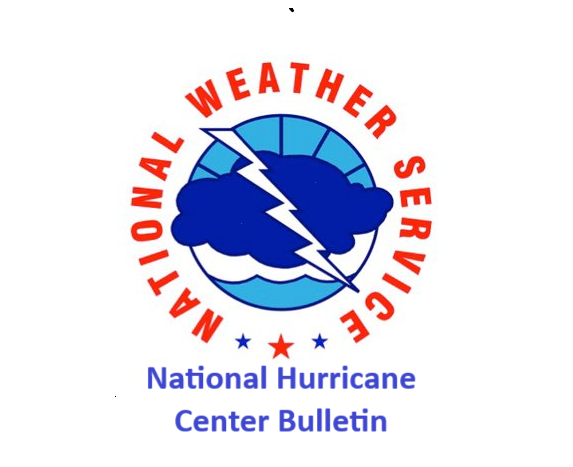000 WTNT44 KNHC 132053 TCDAT4 Potential Tropical Cyclone Nineteen Discussion Number 1 NWS National Hurricane Center Miami FL AL192024 400 PM EST Wed Nov 13 2024 Showers and thunderstorms associated with the broad area of low pressure over the central Caribbean Sea that the National Hurricane Center has been monitoring have increased and are showing signs of organization. While some mid-level rotation is evident in visible satellite images near a recent burst of convection, the low-level circulation remains broad and elongated. However, the system is expected to become a tropical storm within the next day or so and it is likely to bring tropical storm or hurricane conditions to land areas within the next 36 to 48 hours. Therefore, the National Hurricane Center is initiating Potential Tropical Cyclone advisories for this disturbance. The initial motion is more uncertain than normal since the system is still in the formative stage, but the best estimate is westward at about 5 kt. A continued westward motion is anticipated during the next few days with a slower forward speed as the system moves into the western Caribbean Sea. As steering currents weaken, the system is forecast to meander just offshore, or along the coast of Central America for a couple of days late this week and over the weekend. Later in the period, the ridge to the north, begins to erode and slide eastward as a mid-level trough digs into the western Gulf of Mexico, which will induce a northwestward motion towards the end of the forecast period. Model guidance is in fairly good agreement with the overall track evolution, however they differ on potential land interaction in Central America, and if the system moves onshore and how long it remains inland. The NHC forecast lies near the consensus models, near HCCA and TVCA consensus aids. Since the disturbance currently lacks a well-defined center, users are reminded that the average forecast track uncertainty is larger in these situations, and future track adjustments may be required. The models suggest a more well-defined center should develop during the next day or so. Once the system becomes better organized and develops an inner core, the environmental conditions appear favorable for strengthening. Thus, the NHC forecast shows strengthening while the system moves into the western Caribbean sea. However, there remains higher than normal uncertainty in the intensity forecast due to potential land interactions. If the system remains over water, it could be stronger than indicated below, but if it moves over Central America weakening would occur. The NHC forecast lies near the consensus aids given this uncertainty. Based on the NHC forecast, Tropical Storm and Hurricane Watches have been issued for portions Nicaragua and Honduras. KEY MESSAGES: 1. Through early next week, heavy rainfall will cause significant, life-threatening flash flooding and mudslides across portions of Central America, particularly Honduras, Belize, El Salvador, eastern Guatemala, and western Nicaragua. 2. The disturbance is forecast to be near hurricane strength when it moves near the eastern coast of Honduras and northeastern Nicaragua on Friday and Saturday. Hurricane and tropical storm conditions are possible over portions of that area. 3. The system is forecast to approach Belize and the Yucatan Peninsula of Mexico at or near hurricane strength by early next week where there is a risk of dangerous storm surge and damaging winds. Residents in these areas should monitor the latest forecast updates and ensure that they have their hurricane plan in place. 4. It is too soon to determine what impacts the system could bring to portions of the eastern Gulf of Mexico, including Florida, the Florida Keys, and Cuba during the middle portion of next week. Residents in these areas should regularly monitor updates to the forecast. FORECAST POSITIONS AND MAX WINDS INIT 13/2100Z 16.2N 79.0W 25 KT 30 MPH...POTENTIAL TROP CYCLONE 12H 14/0600Z 16.2N 80.9W 30 KT 35 MPH...TROPICAL CYCLONE 24H 14/1800Z 16.3N 83.0W 35 KT 40 MPH 36H 15/0600Z 16.4N 84.3W 45 KT 50 MPH 48H 15/1800Z 16.4N 84.8W 60 KT 70 MPH 60H 16/0600Z 16.3N 84.8W 60 KT 70 MPH 72H 16/1800Z 16.1N 84.7W 60 KT 70 MPH 96H 17/1800Z 16.3N 85.4W 60 KT 70 MPH 120H 18/1800Z 18.3N 88.5W 55 KT 65 MPH...INLAND $$ Forecaster Kelly
Source link


